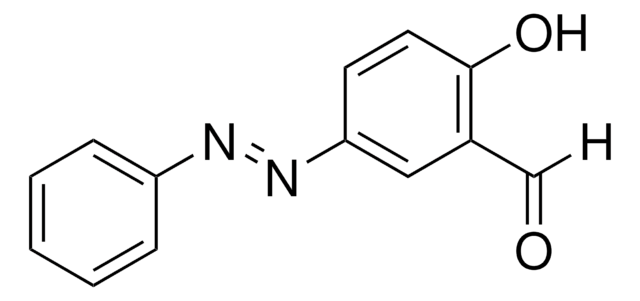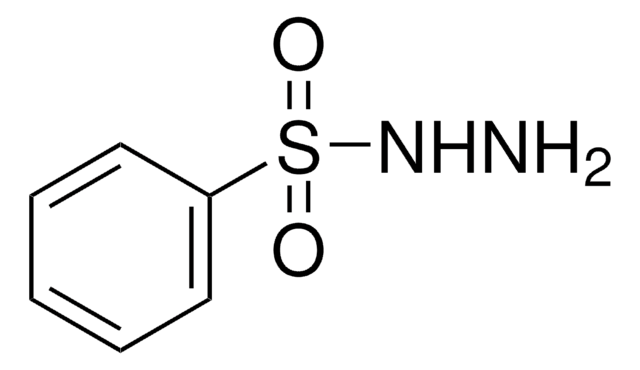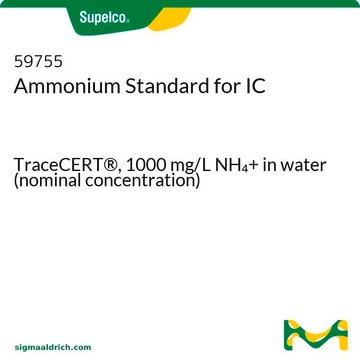SML0416
TCN-201
≥98% (HPLC)
Synonym(e):
3-Chloro-4-fluoro-N-[(4-{[2-(phenylcarbonyl)hydrazino]carbonyl}phenyl)methyl]benzenesulfonamide
About This Item
Empfohlene Produkte
Assay
≥98% (HPLC)
Form
powder
Farbe
white to beige
Löslichkeit
DMSO: 5 mg/mL (clear solution)
Lagertemp.
2-8°C
SMILES String
Fc1ccc(cc1Cl)S(=O)(=O)NCc2ccc(cc2)C(=O)NNC(=O)c3ccccc3
InChI
1S/C21H17ClFN3O4S/c22-18-12-17(10-11-19(18)23)31(29,30)24-13-14-6-8-16(9-7-14)21(28)26-25-20(27)15-4-2-1-3-5-15/h1-12,24H,13H2,(H,25,27)(H,26,28)
InChIKey
FYIBXBFDXNPBSF-UHFFFAOYSA-N
Biochem./physiol. Wirkung
Leistungsmerkmale und Vorteile
Signalwort
Warning
H-Sätze
Gefahreneinstufungen
Eye Irrit. 2 - Skin Irrit. 2 - STOT SE 3
Zielorgane
Central nervous system, Respiratory system
Lagerklassenschlüssel
11 - Combustible Solids
WGK
WGK 3
Flammpunkt (°F)
Not applicable
Flammpunkt (°C)
Not applicable
Analysenzertifikate (COA)
Suchen Sie nach Analysenzertifikate (COA), indem Sie die Lot-/Chargennummer des Produkts eingeben. Lot- und Chargennummern sind auf dem Produktetikett hinter den Wörtern ‘Lot’ oder ‘Batch’ (Lot oder Charge) zu finden.
Besitzen Sie dieses Produkt bereits?
In der Dokumentenbibliothek finden Sie die Dokumentation zu den Produkten, die Sie kürzlich erworben haben.
Artikel
We offers many products related to ion channel family glutamate receptors for your research needs.
Unser Team von Wissenschaftlern verfügt über Erfahrung in allen Forschungsbereichen einschließlich Life Science, Materialwissenschaften, chemischer Synthese, Chromatographie, Analytik und vielen mehr..
Setzen Sie sich mit dem technischen Dienst in Verbindung.









